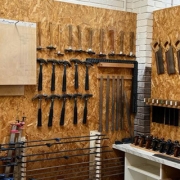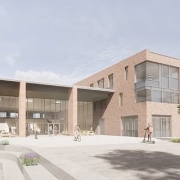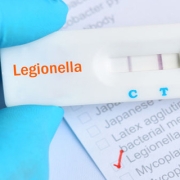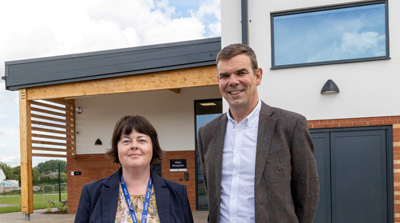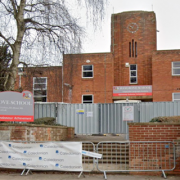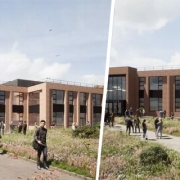Top Department for Education bosses were quizzed about the government’s response to the RAAC crisis yesterday revealing a lack of communication.
1. Planned rebuilds won’t be bumped, but might be delayed
The RAAC crisis has prompted fears that some of the 400 confirmed projects in the current school rebuilding programme could be bumped.
But DfE permanent secretary Acland-Hood insisted today the government “will not be taking named schools out of the schools rebuilding programme”.
“So if a school is one of the 400 that has been named it will be rebuilt under the programme.”
However, she said it was “possible that we might need to look at timing and phasing, but we will seek not to interfere with timescales already given in detail”.
She expected “we will be prioritising RAAC schools for the remaining 100 slots in the programme”.
2. Rebuilding scheme could expand
Keegan has pledged to rebuild all schools “that need it” as a result of RAAC and chancellor Jeremy Hunt has said he will “spend what it takes”.
Acland-Hood said today the chancellor’s “commitment that he will also make sure that longer-term work can be funded means I would expect that we would be looking at an increase…we could be looking at an increase in the numbers of schools coming through the school rebuilding programme”.
The current rebuilding programme aims to rebuild 50 schools a year, but Jane Cunliffe, chief operating officer of the DfE’s operations and infrastructure group, said she was “confident that we have got the capacity to do more than that through our supply chain” if needed.
3. DfE will check reserves of schools asking for revenue help
After several days of ambiguity, the DfE finally confirmed last week that it will help schools to meet “reasonable” revenue costs such as renting alternative sites and bussing pupils elsewhere.
Today, Acland-Hood confirmed that as part of this, there would be a “stage of checking that the expenditure is properly related to [RAAC], that it’s reasonable and so on and that the school doesn’t have a very very high level of reserve. But we’re setting the most generous bar we can on that.”
She said her department would “err on the side of generosity and our assumption is that we will meet all reasonable costs”.
4. ‘Intrusive’ surveys ruled out due to time constraints
The surveys the DfE is conducting at schools with suspected RAAC are visual only, but Acland-Hood revealed today that “intrusive” surveys were considered, but ruled out.
They would involve drilling into RAAC, which means taking spaces “out of use” and propping them.
“It would have massively extended the length of time it would have taken to identify RAAC across the whole of the school estate.
“One of the things that we could see was in order to mitigate, it would have been roughly as disruptive as doing the mitigation. So we thought we’d go for the mitigation.”
5. Wait for updated school numbers, MPs told
Last week, the DfE published a list of 147 schools currently affected by RAAC. But it was a week out-of-date. Officials plan to update the list fortnightly, and are keeping quiet about numbers in between official publications.
Acland-Hood said the DfE was trying to give new information to schools first to give them time to manage the situation before being named.
“We want to be really transparent and really clear about this but we also want to manage it really sensibly for the schools.”
6. ‘Hundreds’ of questionnaires outstanding
Cunliffe revealed today that 98 per cent of schools have now completed the DfE’s questionnaire on the presence of RAAC, up from 95 per cent last week.
But that still leaves a “few hundred” that have not submitted theirs. MPs were told the DfE was chasing schools that are yet to respond.
The civil servants also revealed today they would be checking the accuracy of responses from schools.
7. Officials won’t say how many schools still need survey
Acland-Hood and Cunliffe were asked repeatedly how many schools are still awaiting surveys, but would not answer.
They said contractors working for the department had now conducted over 600 and were doing “several hundred a week”.
They also revealed some schools had needed to be re-surveyed, some because of access issues during the first survey, and others because of the presence of asbestos.
MPs reported that their schools had received conflicting information from the government.
“We’re clearly not getting communication of this right, so let me take that away,” said Acland-Hood.
8. No data on temporary classrooms
MPs also asked how many temporary classrooms had so far been provided to schools.
Cunliffe said she didn’t “have the number with me today”.
Acland-Hood said she would write with figures for those already supplied, but said the number “will be small”, in part because some schools have been able to make it work without them.
She added that the target timeframe for supplying buildings to schools was two weeks, given they needed a foundation, utilities and often planning permission.
9. Top DfE boss defends Keegan’s hot mic jibe
Education secretary Gillian Keegan has been widely criticised after a “hot mic” incident last week, in which she said others had “sat on their arses”.
But Acland-Hood defended the education secretary, who she said had been “generous I think in recognising work done in the department”.
“I don’t think she did intend to suggest that others haven’t been working hard.”
10. Few free schools didn’t have site surveys
The Observer reported yesterday that the government failed to carry out detailed surveys for potential hazards like RAAC and asbestos for some free school sites.
Pressed on the revelations today, Cunliffe said that “obviously the majority of free school sites are surveyed”, but added: “I think there were some where surveys were difficult to do before the site was purchased.
“I can write with details. I think it’s a very very small number of sites.”
Acland-Hood defended the government’s focus on opening free schools over the past decade.
“We always try to keep the right balance between funding we spend on new places and on maintenance and refurbishment, and I think it’s right that that balance changes over time.”
Source: Schools Week

